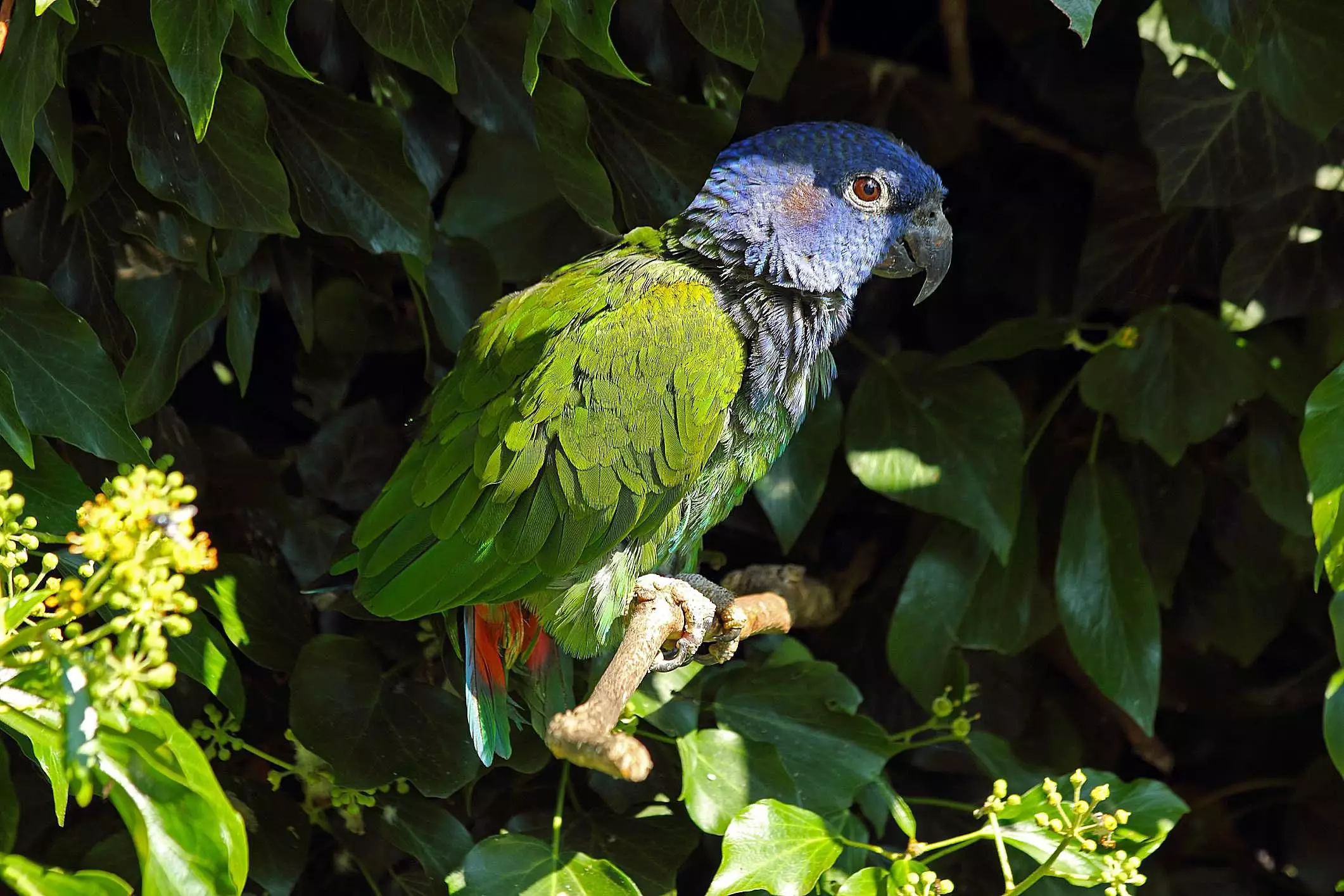Renowned for their strikingly vivid plumage, the Blue Headed Pionus, scientifically known as Pionus menstruus, has captured the hearts of avian enthusiasts around the globe. Native to the lush forests of Central and South America, notably Costa Rica, this parrot thrives in humid tropical environments. Their vibrant colors and engaging personalities make them not just a pet but a cherished member of many households. However, potential owners must prepare well to ensure both the bird’s wellness and harmony in their home.
The Blue Headed Pionus stands out among its parrot relatives, measuring approximately 12 inches from beak to tail at full maturity. These birds possess a sturdy, compact physique that is characteristic of Pionus species. Typically, adults range between 8 to 9 ounces in weight when healthy. The most striking feature is, of course, the brilliant blue color of their head, which flows into a bright green body adorned with bronze tinges on the wing’s upper parts. Their distinctive look is completed with red feathers under the tail, dark cheeks, and a characteristic red spot on the upper mandible of their beak.
One of the most appealing aspects of owning a Blue Headed Pionus is their prolonged lifespan, which can reach up to 40 years or more in captivity. This significant lifespan equates to a substantial commitment for pet owners, making it essential for prospective owners to thoroughly research and reflect on whether they can meet the long-term needs of this bird. Caring for a pet parrot is not just about providing food and shelter; it involves the emotional and mental engagement of both the bird and its owner, making a commitment to avian companionship a serious decision.
The Blue Headed Pionus is often characterized by its endearing and gentle temperament. Unlike many other parrot species, they are known for their relatively quiet demeanor, making them an appealing option for individuals seeking a less boisterous companion. These birds are independent yet affectionate, forming close bonds with their owners while also displaying a degree of self-sufficiency. They thrive on interaction, enjoying playtime with toys and games, which highlights the importance of socialization in their development.
What’s more, owners frequently note that Blue Headed Pionus tend not to exhibit aggressive biting tendencies, although they are certainly capable of drawing blood if provoked. The key to a positive relationship with these birds lies in understanding their behavioral cues and providing them with the necessary social stimuli to keep them engaged and happy.
Feeding the Blue Headed Pionus requires attention to nutritional detail. Ensuring a balanced diet is essential for their health and vitality. A high-quality pelleted diet should serve as the foundation of their meals, supplemented by seed mixes formulated for larger parrot species. However, the power of variety cannot be overstated—these birds flourish on fresh, bird-safe fruits and vegetables, which provide crucial vitamins and minerals. Additionally, homemade bird treats, such as bird bread and sprouts, can significantly enrich their diet.
An adequate diet not only supports the physical health of the Blue Headed Pionus but also plays a critical role in their mental well-being. Proper nourishment fosters an active, playful demeanor, highlighting the importance of feeding right for these lively companions.
Mental and physical stimulation is vital for the Blue Headed Pionus. These active birds thrive when given ample space and opportunity to explore and play outside their cages. Owners should expect to dedicate at least 3 to 4 hours daily to supervised out-of-cage playtime in safe, bird-proof spaces. Considering their curiosity, it’s crucial to ensure a secure environment where they cannot get into trouble or harm themselves.
This exercise isn’t just a luxury; it’s a necessity. It helps prevent behavioral issues that can arise from boredom or lack of physical activity, making it essential that potential owners factor in this playtime into their daily routines.
The Blue Headed Pionus is an alluring and rewarding pet, but it is crucial to consider whether they are the right fit for your lifestyle. Owning one of these captivating birds involves more than enjoying their beauty; it demands dedication, time, and understanding of their unique needs. Before deciding to welcome a Blue Headed Pionus into your life, it is advisable to consult with experienced breeders and aviculture experts. Doing thorough research will prepare you for the journey ahead, ensuring a fulfilling companionship with your feathered friend for years to come.

